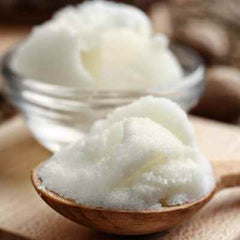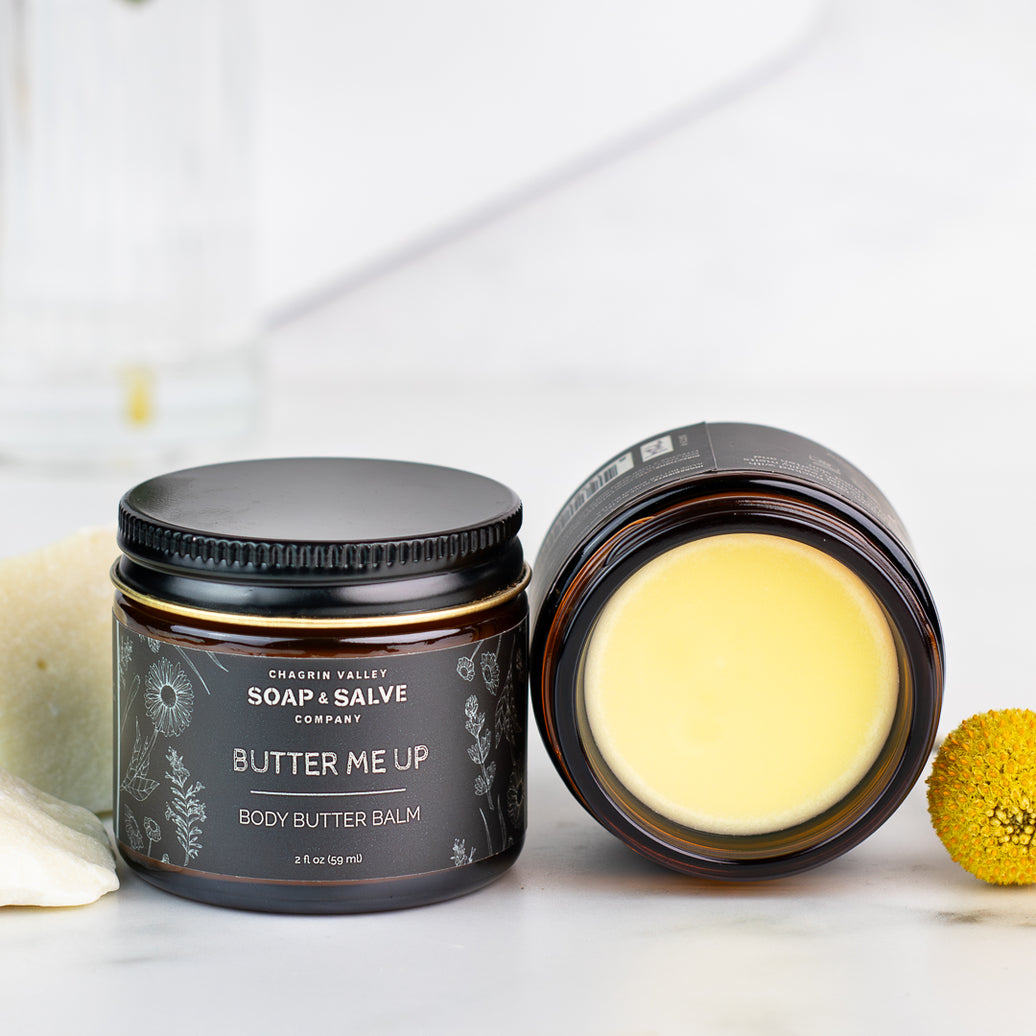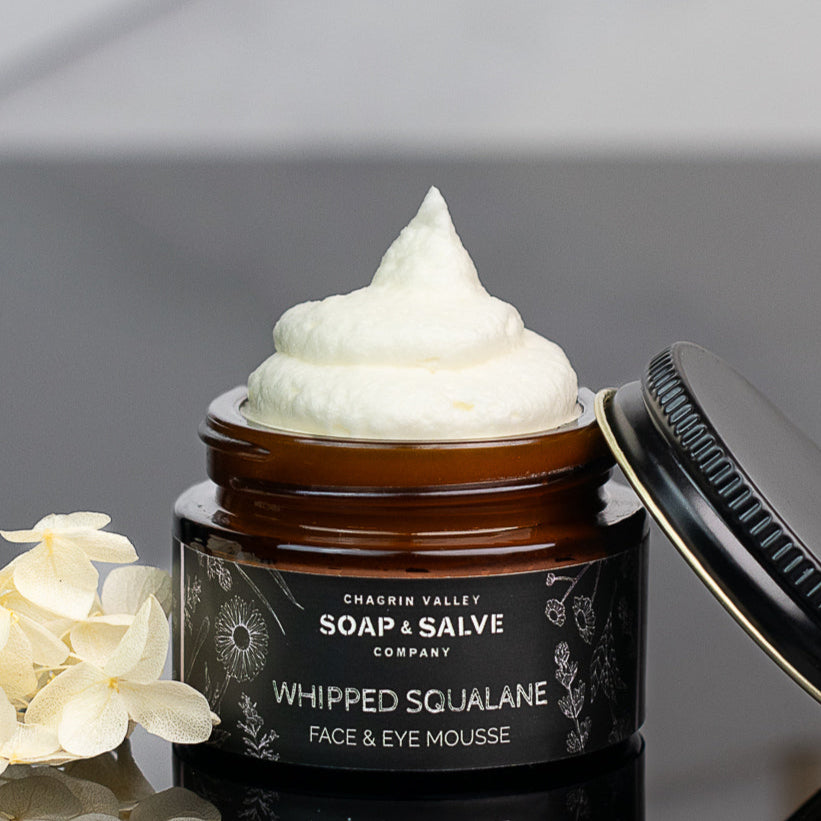Olive Butter contains the moisturizing and antioxidant properties of olive oil, along with the deep moisturizing and skin-nourishing qualities of thicker butter for healthy, hydrated skin. Olive butter is a rich, thick moisturizer. Unlike olive oil, the consistency of olive butter creates a rich emollient with a less greasy feel which makes it great for all skin types.
Our Olive Butter begins with the cold pressing of olives to create olive oil, rich in vitamins and nourishing fatty acids. The olive oil is mixed with hydrogenated non-GMO soybean oil to create a soft, silky butter that melts quickly and deeply hydrates the skin.
We use olive butter in our best-selling Squalane Face & Eye Cream. We experimented with so many ingredients and chose olive butter because its characteristics are very similar to those of shea butter. While the emollients in shea are often too heavy for those with normal or oily skin, the olive butter whips up beautifully into a lovely, lightweight facial cream that works for all skin types.
Eating Trans Fats vs. Topical Application: What's the Difference?
We have been asked by concerned customers about the safety of hydrogenated oils in skin care. A common question is: "I avoid eating hydrogenated oils due to their trans fat content, but are they safe to apply to my skin?"
The answer is, yes they are safe to use topically on the skin.
While the negative health effects of consuming trans fats are well known, when applied topically the story changes dramatically. The key difference lies in how the body processes the fats.
When ingested trans fats travel through the digestive system. The body's digestive enzymes break down the hydrogenated oil into smaller components called trans fatty acids. These trans fatty acids are eventually released into the bloodstream, contributing to the development of heart disease and other cardiovascular issues.
In stark contrast, when applied topically, hydrogenated oils are not broken into trans fatty acids, as the skin lacks the necessary enzymes. Additionally, the skin's barrier function prevents large molecules, including trans fats, from penetrating. The molecules remain on the surface of the skin forming a protective layer that helps retain moisture to hydrate and soften the skin.
Since topically applied hydrogenated oils remain external, are not broken down, and do not penetrate the skin or enter the bloodstream, they pose no risk of adverse health effects.


